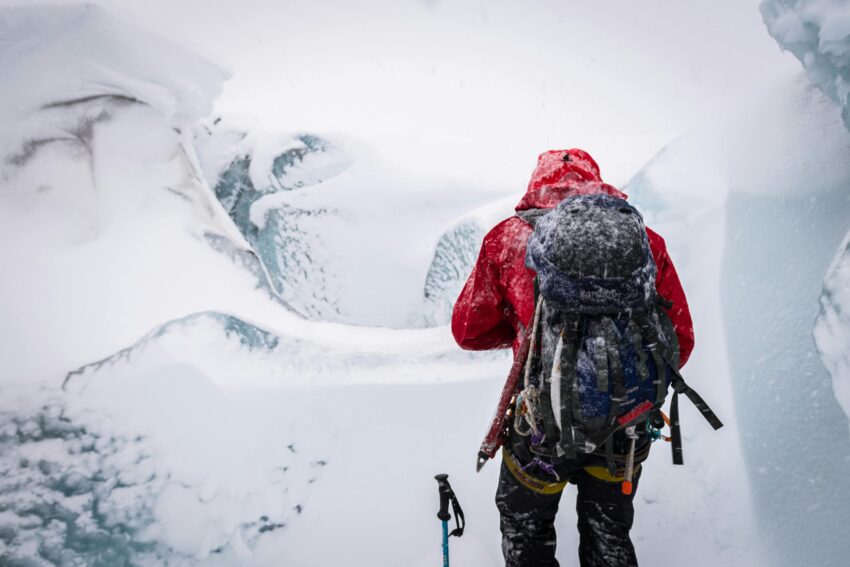At work, I learnt to underpromise and overdeliver. In life, I’m still learning to overprepare and underworry.
In a world obsessed with optimisation, we often trim every last bit of fat, leaving no buffer for the unexpected.
I was cocky. I thought I knew how personal finance worked.
After all, I trawled through personal finance websites, budgeted, calculated, and pored over my spreadsheet for hours on end each day.
I thought having a pool of emergency funds that lasted me eight months was good enough. With those funds set aside, I was free to dump all the cash nett of my expenses into the market.
But bam – things started changing. My steady stream of guaranteed income stopped in November 2024. I decided to try out a one-month digital nomad life. Then, I had to account for three other trips in mid-2025 that were spontaneously accepted.
As my cash dwindled and hovered around the magic number I deemed “safe” a few months ago, that was when…
I panicked.
The truth is, no amount of calculating, reading, or watching can genuinely recreate the power of fear and uncertainty over the lack of a strong safety net.
I diligently saved up my emergency funds. I watched a YouTuber’s video on what it was like to get laid off at 40 years old. I listened while my dad recounted being retrenched during the Great Recession.
But what I don’t have are the emotional scars of those who actually experienced it.
While theoretical understanding of financial vulnerability can be gleaned from others’ experiences, it remains a mere shadow of the lived reality. We see the world through a different lens until we genuinely experience it ourselves.
My spreadsheets can model the savings and expense rates. But they can’t show me the feeling of unease as I spend what I earn with none left for investments or savings. The numbers couldn’t have predicted that I now have to think twice about every action I take. They couldn’t have spelled out the trade-offs I’m now making – prioritising growing my own business and seeing the world, which means cutting back on eating out, entertainment, and buying things on a whim.
True robustness comes from acknowledging that things break, plans change, and the world is inherently messy.
True peace of mind comes from having a strong safety net. In fact, I always thought richer individuals could afford to take more risks.
But here’s where it gets interesting.
A Boston University study showed that kids from lower socioeconomic status took more risks than their peers. The researchers proposed that developing organisms learn to use different risk strategies based on the availability of resources and the extent of their needs.
A well-fed fox, for example, is unlikely to risk entering dangerous territory for a large meal when a small, certain amount of food is readily available. A hungry fox, however, is more likely to take chances for a big dinner.
This biological imperative, this fundamental risk calculation, isn’t just for foxes. It’s for us too. My “safe” eight-month emergency fund, in theory, should have provided a sense of security.
But it didn’t, because my perceived “hunger”—the fear of financial instability—was far greater than I anticipated. I was a well-fed fox suddenly thrown into a landscape where the familiar hunting grounds had shifted.
And that’s precisely why peace of mind is the most underrated thing. It’s not about the numbers on a spreadsheet; it’s about the emotional resilience to navigate the unpredictable. My initial calculations were rooted in a theoretical understanding of risk, but they failed to account for the emotional weight of uncertainty.
Think about it:
- Peace of mind allows for clearer decision-making. When anxiety clouds your judgment, every choice feels fraught with danger. My panicked state led to overthinking, second-guessing, and a general sense of unease that hindered my ability to focus on building my business.
- Peace of mind fosters creativity and innovation. When you’re not constantly worrying about survival, you have the mental space to explore new ideas and take calculated risks. The fear of losing my safety net stifled my creative energy, making it harder to adapt to my new circumstances.
- Peace of mind enhances well-being. The constant stress of financial insecurity takes a toll on your physical and mental health.
The Boston University study highlights that risk-taking is often driven by necessity. But wouldn’t it be more empowering to take risks from a position of strength, a place of genuine security? Not a false sense of security derived from a spreadsheet but a deep, visceral understanding that you can weather any storm.
And that’s why I’m still learning:
- To leave room for error over prioritising efficiency.
- That inefficiency in the form of redundancy can be a form of long-term security.
- To avoid single points of failures.
- Overprepare and underworry in life.
Because you never know what may happen. And having the option to choose is the biggest difference between being a victim of circumstances and being the master of your own path.
Always Yours,
Val
I invest with Interactive Brokers (IBKR) Singapore for my LSE-listed ETFs and US-listed stocks, which provides:
- Access to an incredibly vast array of financial products across over 150 markets in 33 countries and 28 currencies from a single unified platform.
- Near-spot currency conversion rates and transparent, low commissions.
Earn up to US$1,000 in IBKR stock when you join via my IBKR referral link.
I invest with FSMOne for my Singapore-listed ETFs and stocks, which is great for:
- Those who prefer a disciplined, dollar-cost averaging approach with its Regular Savings Plan (RSP).
- Access to CPF and SRS investing.
Use my FSMOne referral link now!
